|
As both a transgender woman and an experienced Anglican priest, it is highly disappointing to hear of the recent resolution of the Anglican Synod of Tasmania about what it calls ‘Biological Sex’. This betrays all the faults of what was a very late ‘motion without notice’: being ill-considered, under-informed and divisive, especially in its lack of attention to Anglican and other transgender people’s own well-substantiated experiences of faith and identity. For both Tasmania and the Anglican Communion are blessed with many wonderful transgender people who continue to enrich our communities and bring new life to others. What a difference it then makes when we are listened to and engaged constructively. For my own experience is that, in affirming rather than denying our authentic God-given (not human labelled) gender, transgender people are indeed so much more fully incarnate, at peace and flourishing in our skins, biology and divine purpose. Denying this not only helps maintain unnecessary suffering but restricts the love and joy we have to share within the Church and wider world. After all, St Paul (in 1 Corinthians 12) encouraged the Church, as the Body of Christ, to value its members that are weaker and shamed. This kind of action however feels more like being freshly beaten up and an attempt to cut off transgender members, our families and friends. That is not the message of God’s love that Christians have to offer the world.
The resolution also seems to reflect a recently constructed approach to the Bible which narrows God’s colourful and dynamic kaleidoscope of creation to simplistic black and white binary categories. This does not do justice to how mainstream Anglican theology has typically sought to value the rich and varied textures of the scriptures and the best of evolving human reason. Nor does it sit well with increasingly trans affirming developments in many Anglican dioceses, and other Christian congregations, schools, and agencies across Australia. I hope therefore that Anglican leaders in Tasmania will think again and not encourage their parishes, schools, and other agencies to take such an unhelpful path. The same Synod passed other resolutions making a continuing welcome commitment to addressing environmental challenges and supporting people with disabilities. These are just two of many ways in which Tasmanian Anglicans contribute positively to their communities. What a shame transgender people are not yet regarded as worthy of similar full respect and engagement. For neither trans people nor people of faith benefit from perpetuating today’s unnecessary culture wars, especially those of us who are both. Human beings have genuine differences but, as St Paul also put it, we are called to be one in Christ, in whom ‘there is no longer male and female’. We can be, and do, so much more together. The Revd Dr Josephine Inkpin was ordained in the Church of England in 1986 and has served in many capacities in Anglican dioceses in England and, since 2001, in Australia, as well as an officer of the National Council of Churches in Australia for several years. She is an associate lecturer in the University of Divinity, a member of the global network of Trans and Non-Binary Clergy of the Anglican Communion, and the current Minister of Pitt Street Uniting Church in Sydney.
1 Comment
 Firstly I acknowledge the Wurundjeri people as the traditional owners of this place, their elders past and present, and all First Nations peoples here today. I also particularly give thanks for this gathering to Garry Deverell, who, like my fellow speakers, so ‘gets’ where trans people are coming from and the urgent need for stronger intersectionality for love and justice. The great Black feminist lesbian writer and activist Audre Lorde, put it well: ‘there is no such thing as a single-issue struggle, because we do not live single-issue lives.’[1] Therefore, ‘we share a common interest… you do not have to be me in order for us to fight alongside one another. I do not have to be you to recognise that our wars are the same. What we must do is commit ourselves to some future that can include each other and to work toward that future with the particular strengths of our individual identities.’ How do you regard dragonflies? In one of his great poems (As Kingfishers Catch Fire), the poet Gerard Manley Hopkins not only encourages us to be like them, but, in so doing, to be like Christ. Not everyone has always agreed however. In early colonial Australia for example, white fellas tried to kill dragonflies, just as they/we tried to kill so many other life-giving things that they/we did not understand. Those early colonialists saw dragonflies flying around and landing on their valuable horses, and they saw the horses moving and flicking their tails. So they thought the dragonflies were biting and making them crook. The colonialists were making things worse. The dragonflies were actually eating the mosquitoes and the gnats that were troubling the horses. They were life-givers, saviours even, not devils in disguise. In so many positive ways, dragonflies are thus evocative symbols for transgender people today. For, on this Transgender Day of Remembrance, we do well to attend to how bearers of light have been treated as embodiments of darkness. We do well, as our Gospel today (Luke 23.32-43) reminds us, to remember how Jesus was not crucified alone, and how others are also crucified today. And above all, we do well to affirm that it is only in recognising the light, in strange places, that we find salvation and hope for us all…
The more I grow older, and hopefully a little deeper in understanding, the more I am aware of how religious traditions have wrestled with sexuality and gender in all kinds of extraordinary ways. For sexuality and gender have always been such powerful aspects of human lives and spirituality has therefore necessarily engaged with them as vital features of revelation and relationship, as well as repression and resistance. Sadly. so many 'sanitised' and narrowed readings of the Bible and religious traditions have significantly contributed to human distancing from intimate, celebratory and mature sexuality and gender identities. These are typically those which have much airplay today in wider media as well as conservative and fundamentalist circles. When however we look afresh at scripture and tradition, particularly through lenses of 'queer' experience, we find something very different. Some features can be quite confronting, even profoundly disturbing, full of extraordinary violence and subjugation. Some aspects can also be very different from our our contemporary contexts. Yet there are others, rightly viewed, which can help us face up to our own opportunities for growth towards richer sexual and gendered lives. They can be quite challenging but offer considerable liberative potential. Among these is the story (in Genesis 32.22-31) of Jacob's wresting with the divine, their wounding and blessing...
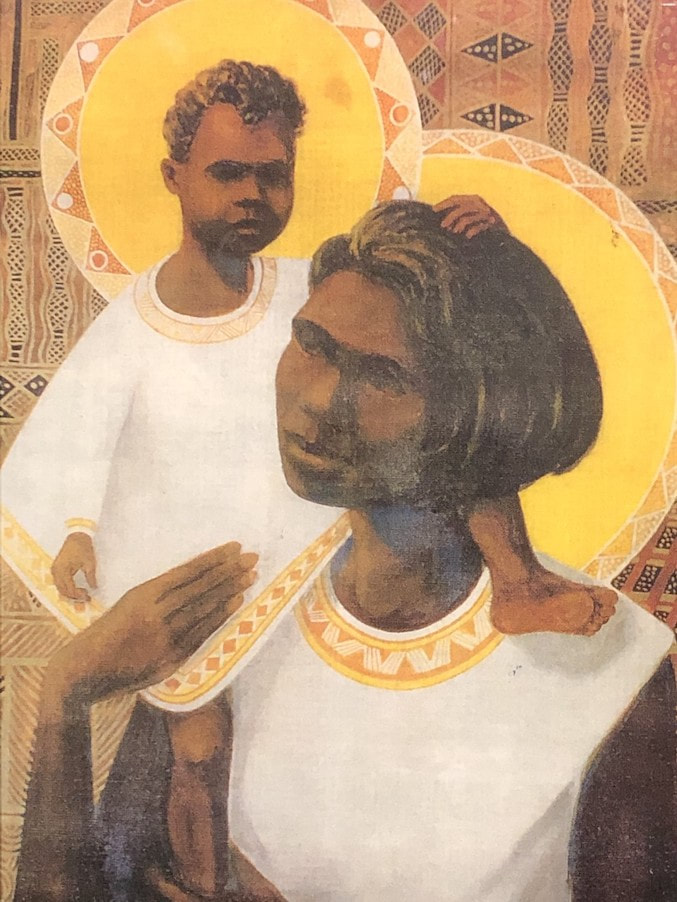 As my wife Penny and I approach our 35th wedding anniversary next month, we are increasingly aware of how our marriage has become one of God's delightful little prophetic jokes to prompt deeper loving awareness. The other day, for instance, we went to a shop in Brisbane to see if we could buy some dresses for our upcoming renewal of vows event. I found a splendid one I liked quite quickly and the shop assistant asked me if it was for a special occasion. 'Yes', I said, 'Penny and I are renewing our vows in a few weeks time. It will be our 35th wedding anniversary'. The assistant was very professional and just murmured 'how lovely'. For the next few minutes however it was very evident that the cogs were whirring in her brain. Clearly I 'passed' more than well enough for her to be considerably puzzled how two women could be marking 35 years of official marriage. Maybe she wondered if we came from some country she hadn't heard of which had quietly adopted marriage equality decades before others. Perhaps she pondered if there was some special lesbian rite she had never imagined. Whatever the case, as for others in society, and certainly within church circles, our fully sanctioned and richly flourishing marriage had stirred the pot. Once again Penny and I were a gentle loving challenge to preconceptions and an invitation to more expansive relationships and celebration of life... 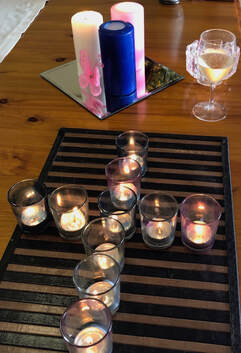 'I will not be silent, nor hidden forever. For I am a transgender woman and I will come to birth. Though my birthing is painful, messy and rocks the cradle, it offers tidings of great joy, and a more just, diverse and beautiful world. It overturns powers and principalities, lifting up the lowly, ransoming my people from darkness, silence and death.' - so begins the reflection below, entitled I Am That I Will Be: for the transgender Christa who is coming to birth (after Marcella Althaus Reid). I wrote this recently on retreat, pondering the great themes of Advent (particularly regarding Mary and the birthing of Christ(a)) in the context of the continuing struggles of transgender people to come fully to birth in our world, in its secular and religious spaces. It is an affirmation of transgender strength and joy in the midst of current birth-pangs, and of the promise contained in the liberation of gender diverse people. It is, in part, a tribute to Marcella Althaus Reid, for her contribution in opening up the way spiritually, not least through her proclamation and call to Indecent Theology. Just as she encouraged us to rework our received ideas and symbols by embracing the experience of the despised and marginalised, so my own cry is for the liberating story of Mary and her child to be revisited and reshaped by transgender experience. It is thus partly a protest against the taming, and spiritually over-decorous confining of Mary and her child, in the transforming spirit of the Magnificat and the renaming and reordering of God and world. It is not intended to dismiss the life-giving insights others find in traditional readings of Advent or aspects of Mariology. It is however a contribution to greater light and generative life in this season and beyond... 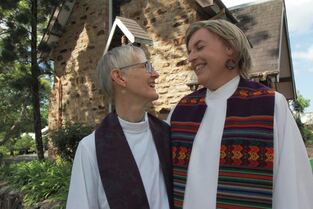 ‘I didn’t marry a gender. I married a person.’ - this has always been a truth of our marriage, before and after Josephine came out as a transgender woman. Just as God ‘looks on the heart’ not ‘outward appearance’ (1 Samuel 16.7), our gender and sexuality are not the core of our lasting relationship. What matters is the love we have for one another, part of God’s greater love. In that way, ‘rainbow marriage’ is also a gift for all... 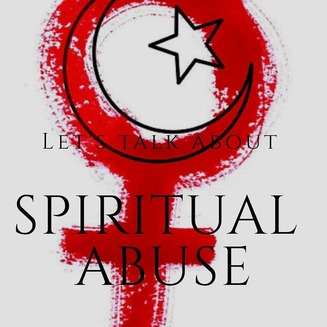 I've spent some of the night crying. For yesterday a beautiful trans man who has just come out thanked me for 'showing that I wouldn't lose God when I transitioned.' Part of me is so grateful, as sharing that truth is one of the reasons I remain, and rejoice to be, a priest. Part of me however is cut, beyond the heart, to the depths of my soul. Indeed I'm somewhat distraught, and, justifiably, not a little angry. For I've been where my friend has been traveling and it hurts. It really hurts. It is like journeying in the depths of hell. Some of us never make it through and our cries of pain continue to echo. My friend's words voice this so often hidden reality. For how dare anyone, any faith, any spiritual group, plant the thought that some of us can be cut off from the love of God, simply for being who we are created to be. Only slowly is the depth of this appalling spiritual abuse beginning to be revealed. It must not be allowed to continue. May our tears help swell the rivers of compassion and set us all free... 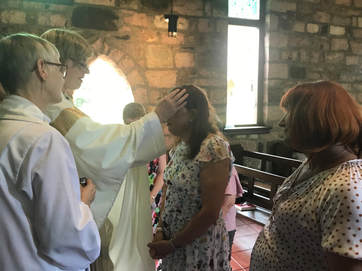 Some days we can glimpse why we were put on this earth. Yesterday was one such moving moment for me, as I led a short rite for a soul friend preparing for gender affirmation surgery. We made no extra special great fuss about this. Nor should we have to, for such signs of grace for LGBTI+ people are really very natural, if our world would but allow itself to know it. Yet it was profoundly significant in the journeys we are making at this time. For today's sea-change of understanding gender and sexuality not only brings healing and hope to specific individuals. It also offers vital hope and healing to tired aspects of our society, not least to religious groups and their members. In a profound sense it is thus sacramental: helping to reveal what has been hidden, opening up and helping to sustain fresh pathways of life and transformation. Our short rite yesterday was like that. It publicly honoured deep movements of life and spiritual wrestling which have not only been unacknowledged and unsupported, but often tragically dismissed and disastrously resisted. It also proclaimed that new life for all of us is to be found in the tender solidarity of us all, in the mystery of God's extraordinary and abundant grace and diversity. Our 'transgender' rite was just a small part of our usual Milton Anglicans Sunday parish eucharist. As such however, it was no 'hole in the wall' secret ceremony, but a truly grounded and open affirmation both of a remarkable sacred particular person and of our growing sense of what it means to re-create community and 'church' today. It felt like a renewing movement of spirit for our community, certainly for my own sense of priesthood, and a re-presentation of what it means to be differently ordered bodies together in the body of Christ. It also made us wonder why such things are not expected in the life of all spiritual communities... 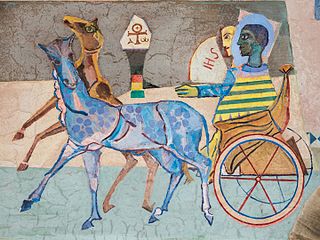 I wonder how many sermons you’ve heard about eunuchs? Not many I would guess. Yet is actually quite extraordinary how many eunuchs are mentioned in the Bible. Perhaps the story from Acts of the Apostles (chapter 8 verses 26-end) might be one we do recognise. Many others however are simply passed over. Jesus for example spoke positively about eunuchs and his words are recorded in Matthew chapter 19. Very little is ever said about that and some people do not even know those verses are there. Even the story we hear today is also usually interpreted without too much attention to the specifics of the person baptised. This is all very sad. For it misses out some very powerful messages for us, for the Church, and for the world, not least those, like the Ethiopian eunuch, who are quite different kinds of people to many expected norms. It is one of those very many ‘queer’ stories in the Bible which speak of a very ‘queer’ kind of God and mission… |
AuthorThe Revd Dr Jo Inkpin: Archives
March 2024
Categories
All
|
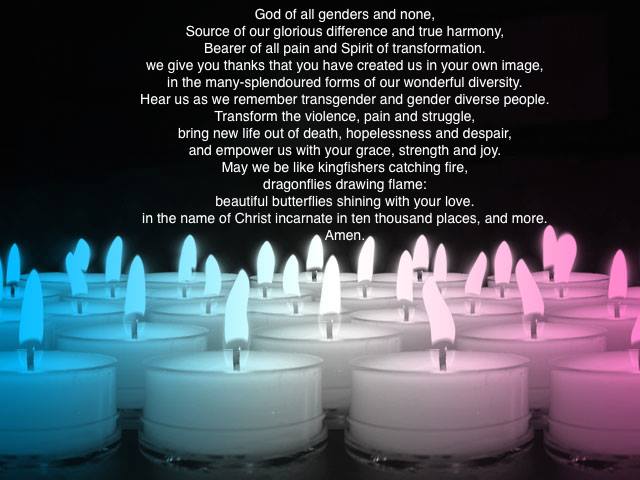
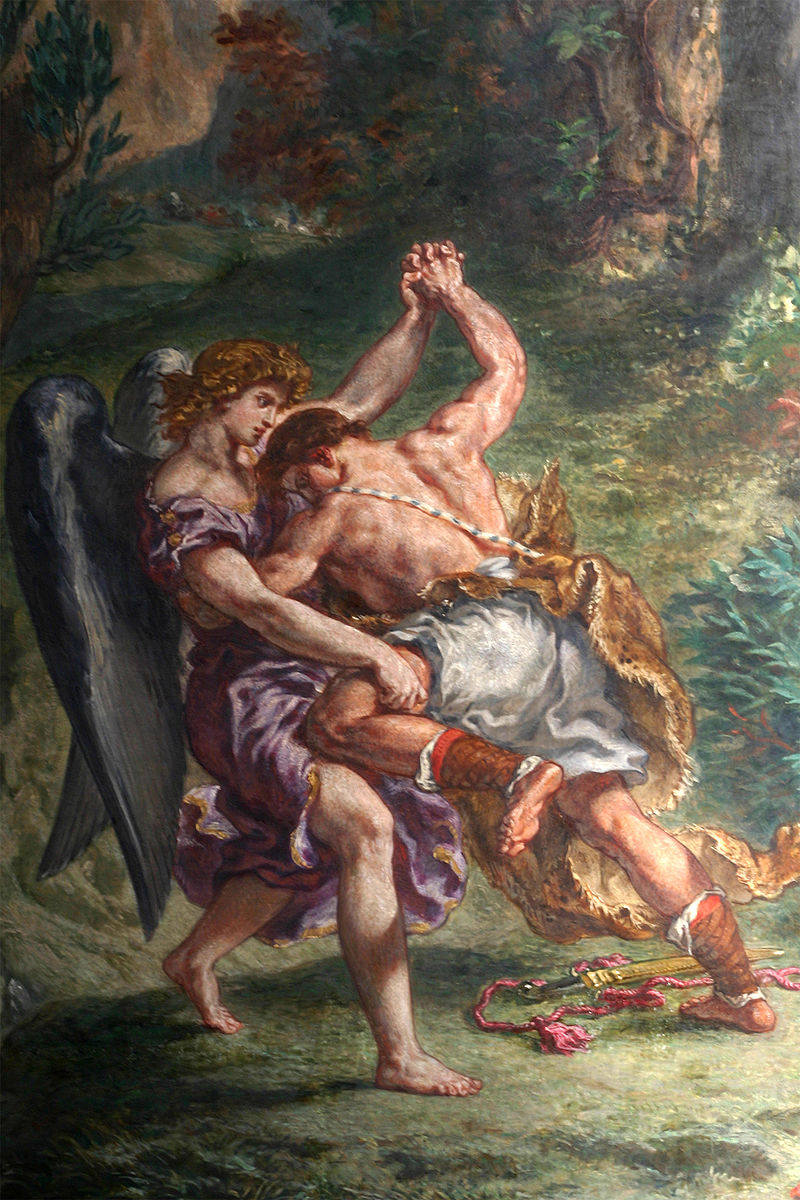
 RSS Feed
RSS Feed